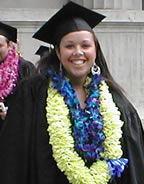 E
Established in San Francisco in 2001, the
Level Playing Field Institute is a non-profit organization that “promotes innovative approaches to fairness in higher education and the workplace.” Sounds simple enough, but check out their website and you’ll see why I’ll be returning to this resource many times to explore their impressive array of projects. For starters, the Level Playing Field Institute sponsors campus programs to help underrepresented students in certain fields excel.
“Equality doesn’t truly exist in the U.S. educational system today,” the LPFI site reads, “or in the workplace. Individuals don’t always advance on merit alone, as they should. Many have to work twice as hard to get half as far.”
While education and workplace programs are at the top of their list of priorities, “practical research, awareness campaigns, and strategic funding” are listed as other key areas upon which the institute focuses.
“In all of the work that we do, we seek to change the tone of the conversation about equality and advancement in America from adversarial and legalistic to collaborative. By moving beyond the legal framework of discrimination and harassment to the broader—perhaps more difficult—issues of fairness, subtle bias, and stereotyping, we hope to spark a new and open dialogue about what is truly happening in the educational system and in our workplaces. By changing the tone and shifting the focus, it is our belief that this new dialogue will play a critical role in revealing and removing the hidden barriers, or subtle obstacles, to education and workplace equality.
“Some address…inequities by promoting an approach to fairness which requires only that everyone be treated ‘exactly the same.’ The Level Playing Field Institute, however, stresses the importance of moving beyond a ‘sameness in treatment equals fairness for all’ solution, because it fails to take two major factors into consideration:
1) The multitude of different strengths and talents in the population, and
2) The magnitude of the systemic imbalances affecting millions in the US.
“In order to create sustainable fairness, individuals and organizations must share the responsibility to change the current climate and culture of inequity. We strive to embody this approach to fairness and incorporate it into all of our work.”
It’s one thing to write or complain about pervasive inequalities in our society. It’s another thing to take action to raise awareness and help eradicate the impact of such inequalities. Look for more details on the Level Playing Field Institute and its worthy efforts to create “sustainable fairness” in future posts.










